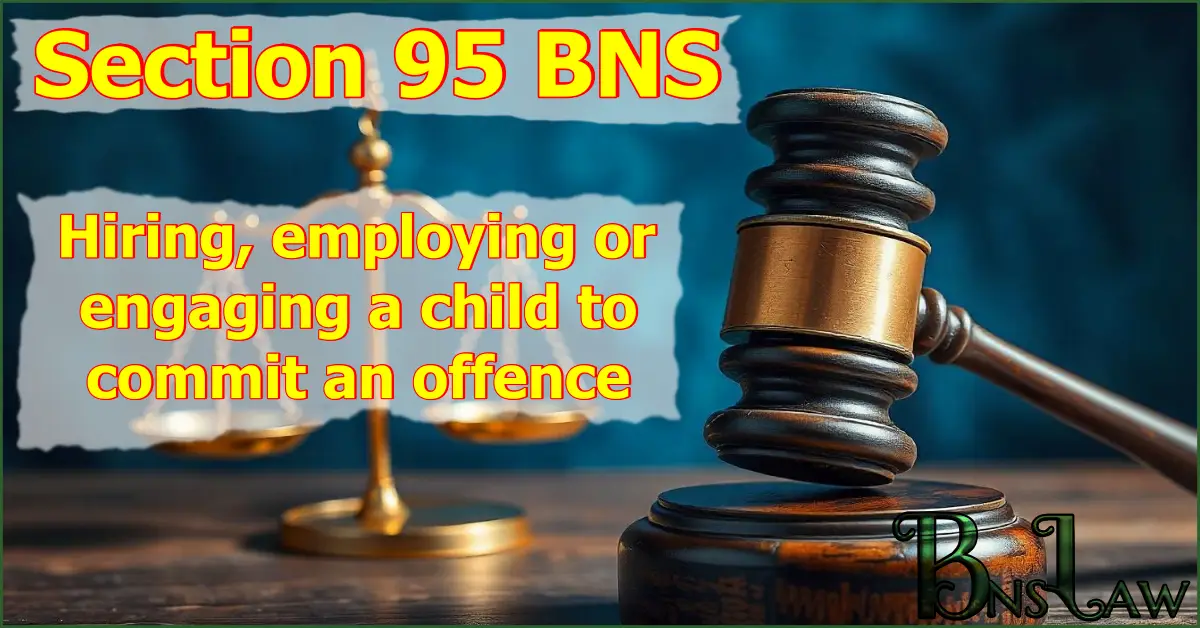Section 95 BNS | BNS 95 | BNS Section 95
Whoever hires, employs or engages any child to commit an offence shall be punished with imprisonment of either description which shall not be less than three years but which may extend to ten years, and with fine; and if the offence be committed shall also be punished with the punishment provided for that offence as if the offence has been committed by such person himself.
Explanation— Hiring, employing, engaging or using a child for sexual exploitation or pornography is covered within the meaning of this section.
READ OTHER SECTIONS OF CHAPTER V — OF OFFENCES AGAINST WOMAN AND CHILD
FAQs of BNS Section 95
-
95 BNS punishment and fine
Punishment and fine under Section 95 of the BNS: Imprisonment for not less than 3 years but which may extend to 10 years and fine.
If offence be committed: Same as for the offence committed. -
95 BNS cognizable or not
The offence under Section 95 of the BNS is cognizable.
-
95 BNS bailable or not
The offence under Section 95 of the BNS is non-bailable.
-
95 BNS trial court
Offence specified in Section 95 of the BNS is triable by the Magistrate of the first class.
If offence be committed: Court by which offence committed is triable.
Important Points
- Cognizable Offences: These are offences where a police officer can arrest a person without a warrant.
- Non-Cognizable Offences: These are offences where a police officer cannot arrest a person without a warrant.
- Bailable Offences: These are offences where the accused can get bail from the police station itself. All bailable offences are listed in the First Schedule of the Bharatiya Nagarik Suraksha Sanhita (BNSS).
- Non-Bailable Offences: Offences in which bail is not granted directly from the police station but after hearing the case in the court, the judge decides when bail will be granted. All non-bailable offences are listed in the first schedule of the Bharatiya Nagarik Suraksha Sanhita (BNSS).
- In the above FAQ, “trial court” means the court that has jurisdiction to try the offence.
- In the above FAQ, the expression “Magistrate of the first class” and “Any Magistrate” does not include Executive Magistrates.
Read other Sections of the BNS
Reference Link: New Criminal Laws (BNS), Ministry of Home Affairs







